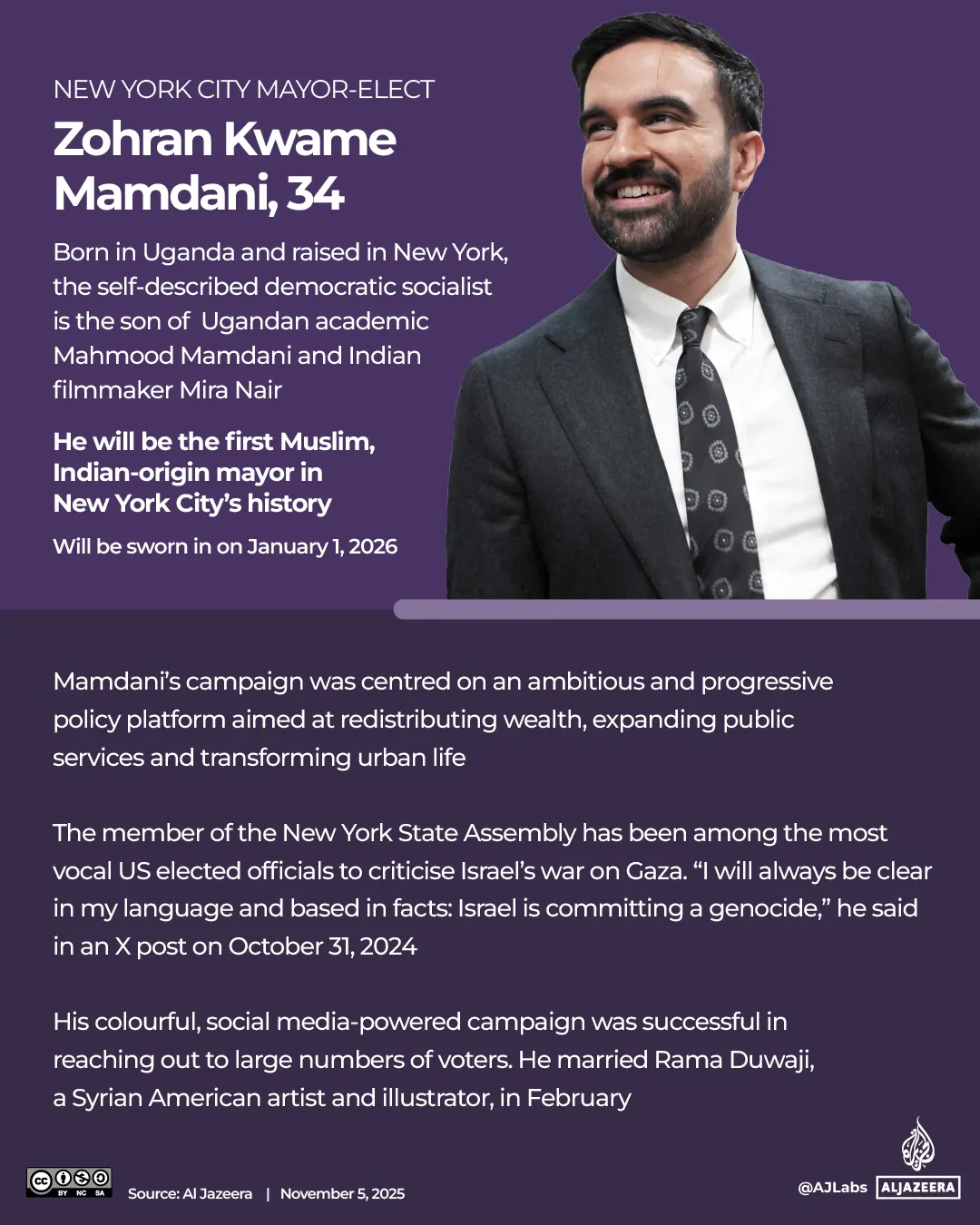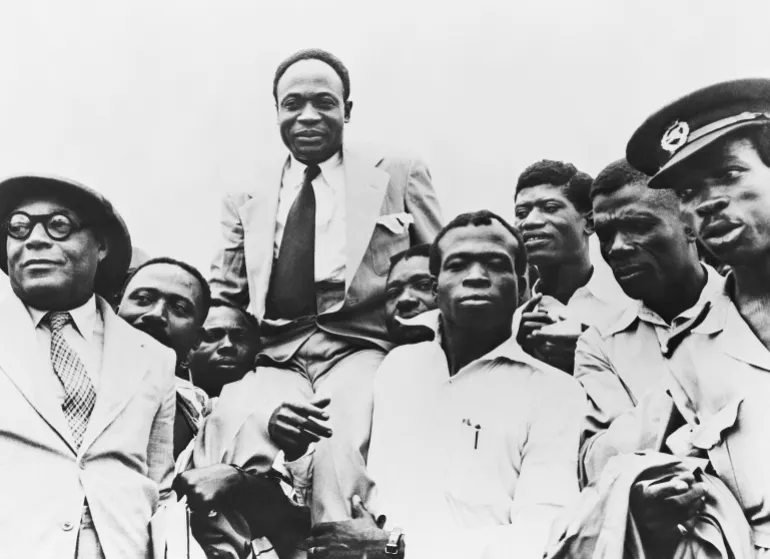Zohran Mamdani will be the first Muslim-Indian mayor of New York City when he takes up the post in January 2026, following an election which has gained global attention.
Mamdani, 34, will be the city’s youngest mayor since 1892. Having entered the race as a largely unknown candidate, he won the Democratic nomination and campaigned on a promise of affordability for New Yorkers, including rent freezes, free buses and universal healthcare, gaining huge popularity among young voters.
Recommended Stories
list of 3 itemsend of list
The mayor-elect, who will be formally inaugurated on January 1, 2026, has also been a beacon for a large number of those in the city who come from immigrant backgrounds.
During a Democratic primary debate in June, his opponent for the nomination – former Democratic Mayor Andrew Cuomo – mispronounced his name several times.
“The name is Mamdani, M-A-M-D-A-N-I, you should learn how to say it because we’ve got to get it right,” he told Cuomo in the televised debate.
But what does Mamdani mean, and what is the significance of his full name, Zohran Kwame Mamdani?

Where is he from?
Mamdani was born in Uganda to Indian parents who have citizenship of Uganda and the US. His father, Mahmood Mamdani, was born in Mumbai (then known as Bombay), India and is Herbert Lehman Professor of Government and a professor of anthropology, political science and African studies at Columbia University, New York. His mother, Mira Nair, is a film director who was also born in India. The family moved from Uganda to South Africa when Mamdani was five, and then to New York when he was seven.
By 2018, Mamdani had become a naturalised US citizen but also retained his Ugandan citizenship. The mayor-elect still regularly visits Uganda with his family, and most recently travelled there to celebrate his wedding to the American illustrator, Rama Duwaji, in July this year.
What does Mamdani’s name mean?
Zohran Kwame Mamdani is a name which reflects his multicultural identity.
His surname, Mamdani, is a common Gujarati name for Khoja Muslims, a sect of Islam.
Etymologically, Mamdani roughly translates to “Mohammadan”, a name for followers of the Muslim Prophet Muhammad.
His first name, Zohran, has both Arabic and Persian origins and carries several meanings, including “light”, “radiance”, and “blossom”.
His middle name, Kwame, is a traditional name of the Akan people, from the ethnic Kwa group who live primarily in Ghana as well as in parts of the Ivory Coast and Togo in West Africa.
Mamdani’s father is known to be a great admirer of the Ghanaian freedom fighter, Kwame Nkrumah, who led the fight for independence from British rule and served as the newly independent country’s first president from 1957.

What is the significance of his middle name, Kwame?
Kwame literally translates to “born on Saturday” in the language of the Akan people. It also means “wisdom” and “leadership”.
Outside of its literal definition, however, the name is strongly connected with the Ghanaian revolutionary, Kwame Nkrumah, who led his country’s independence movement. Ghana was the first sub-Saharan African nation to gain independence from British rule in March 1957. Nkrumah served as its first prime minister and, later, its first president until he was overthrown in a coup in 1966.
He was influential across the continent as an advocate of pan-Africanism, an ideology which promotes unity across the African continent and within its diaspora in defiance of the imperialistic division of African nations under European colonial rule.
Under his administration, which was both nationalist and predominantly socialist, Nkrumah oversaw the funding of national energy projects and a robust national education system which also promoted pan-Africanism.
After he was overthrown in a military coup in 1966, Nkrumah lived his life in exile, settling in Guinea where he died in 1972.